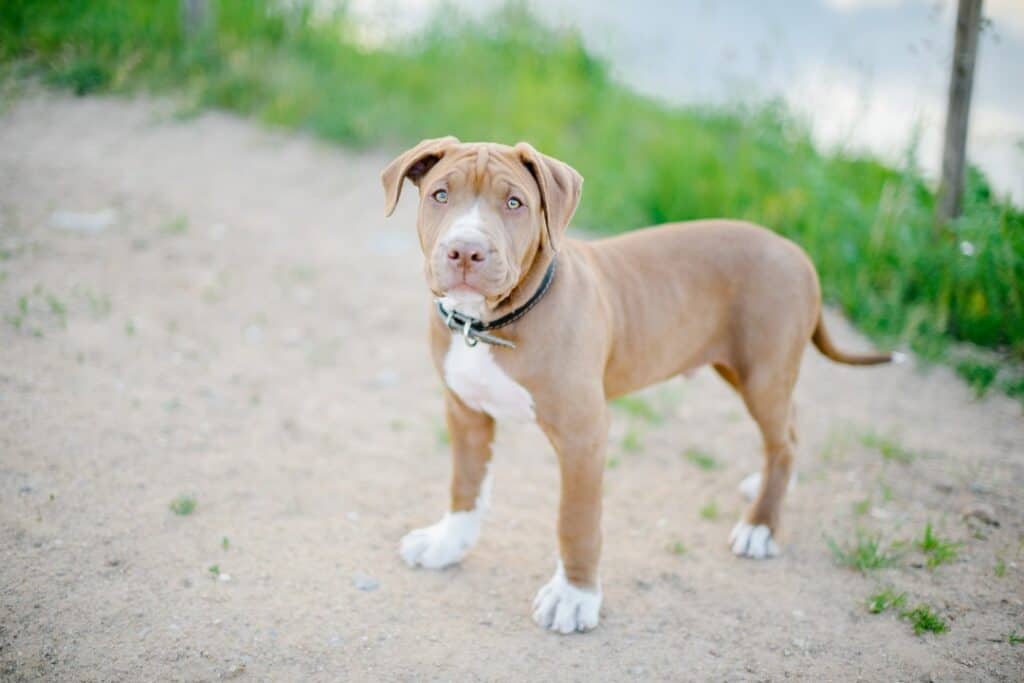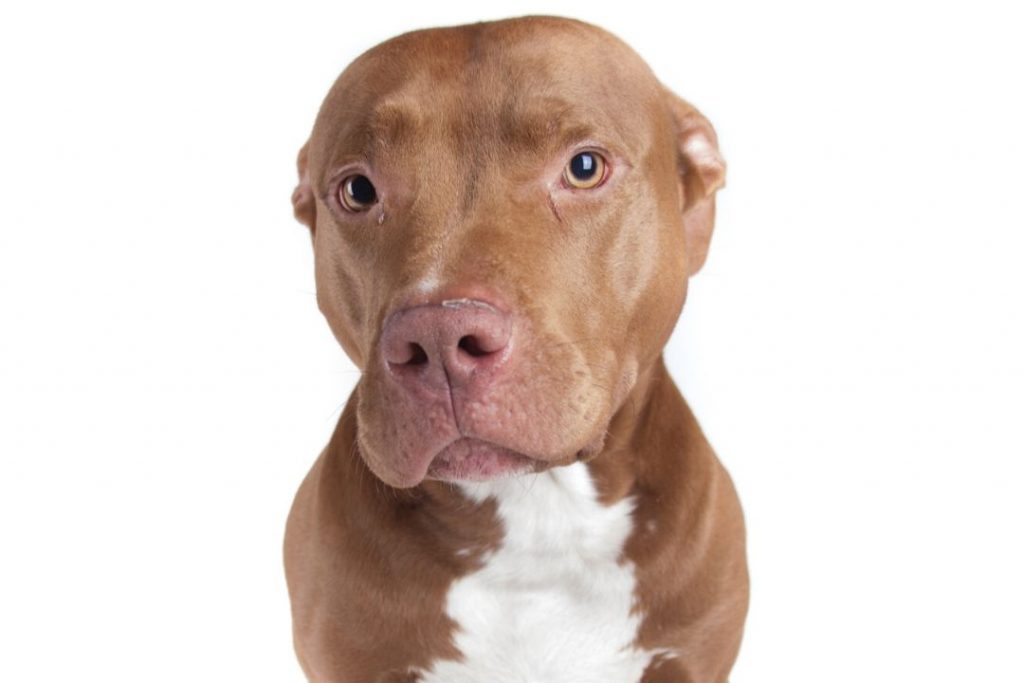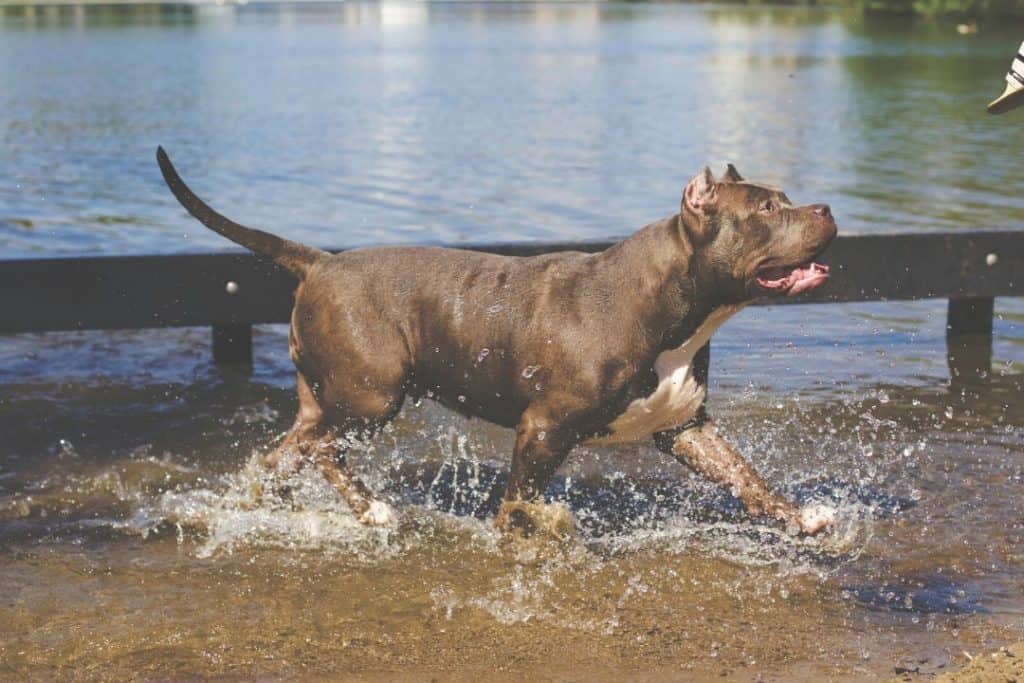This article may contain affiliate links, and I will be compensated if you make a purchase after clicking on my links (at no additional cost to you)
The Pit Bull is a cross-breed of a Bulldog and a Terrier, which means they possess incredible agility and strength. They make fantastic family pets but have been known to be aggressive if not raised correctly. So, why do Pit Bulls have such a notorious reputation?
Pit Bulls attack if they haven’t been raised or trained properly. They can also attack out of fear, feeling territorial, or when in pain or ill. In very rare cases, they can fly into a rage for no reason (this is called idiopathic aggression).
Keep reading to explore why pit bulls have such a bad reputation while debunking any misnomers associated with the breed. This article will examine why pit bulls attack to see if they are worthy of their notoriety.
Why Do Pitbulls Attack Their Owners or Other Dogs for No Reason?
In the introduction, I mentioned the reasons Pit Bulls might attack. I’ll discuss them in more detail below:
1. Upbringing and Training
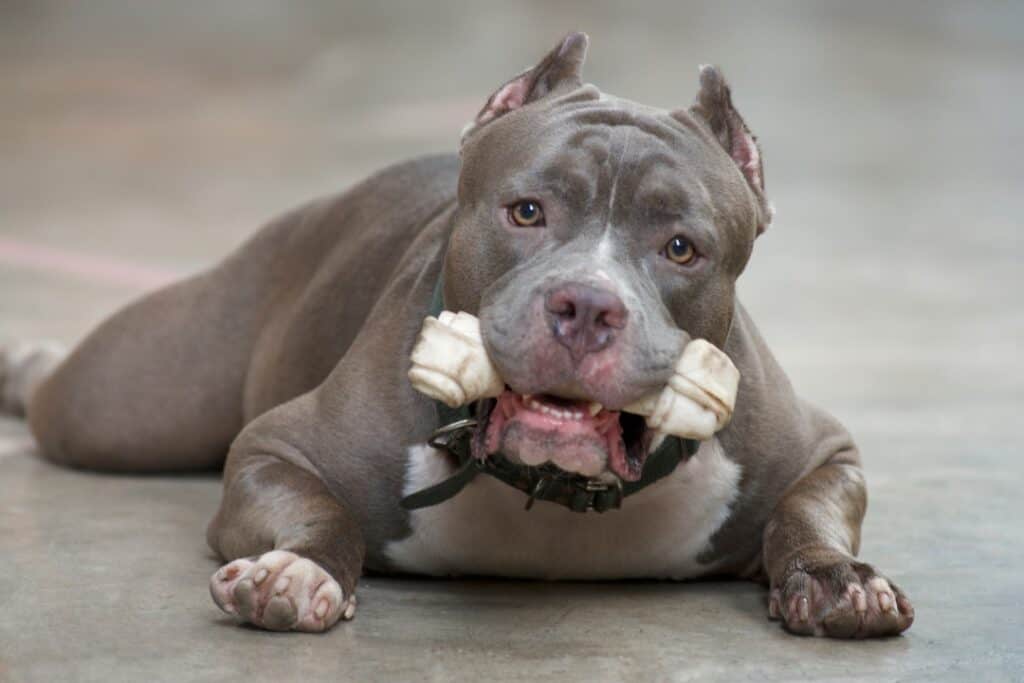
Pit Bulls have an unfair reputation of being aggressive dogs. The notion that they are naturally aggressive dogs may be due to their history and intimidating build. Pit Bulls are stocky and muscular, making them ideal for participating in blood sports like bull-baiting and dog fighting.
To read more about how strong pit bulls are, check out this article.
If Pit Bulls were genetically aggressive, they would all behave similarly, but many are gentle and loving family pets. Conversely, typically friendly breeds, like Golden Retrievers, can also become aggressive, proving that dogs can possess vastly different traits and behaviors regardless of their breed or genetics.
Any dog can have violent tendencies, especially if raised and trained to be aggressive. How a dog is raised has a more significant impact on its behavior than its DNA.
Some data reveals that Pit Bulls are more likely to attack people and animals than other breeds. However, this may simply be because a Pit Bull’s bite can be more serious due to the dog’s size and strength.
Bites from other dog breeds may remain unreported since they don’t always require medical attention.
Pit Bulls that lack socialization or those exposed to confrontations or defensive situations are more likely to be aggressive. However, with proper upbringing and training, any dog, including Pit Bulls, can be kind and gentle.
Here are some tips to avoid raising an aggressive Pit Bull:
- Socialize the dog at a young age by allowing it to interact with people and other dogs.
- Train the dog to be obedient by rewarding good behavior.
- Keep the dog from being dominant through proper discipline.
- Give your dog a chance to exercise regularly.
- Keep your dog well-fed, happy, and healthy.
- Avoid making your dog feel threatened.
You should consider enrolling your dog in obedience training if you’re having difficulty controlling its behavior.
2. Fear Aggression
Fear is one of the leading causes of aggression among dogs, including Pit Bulls. Dogs have an inherent fight-or-flight mentality when they feel threatened. However, Pit Bulls are known to be more aggressive and may take offensive action if they think they are in danger.
Loud noises and unfamiliar people and places can trigger fear in dogs. A traumatic experience where the dog suffers a lot of pain can also cause it to become fearful and aggressive. Pit Bulls with a troubled past that includes abuse are more likely to be aggressive out of fear.
Dogs make fear aggression evident with an offensive posture to intimidate the person or object they’re threatened by. The dog may stiffen up with their ears forward while growling and baring teeth.
If you know what triggers fear aggression in your Pit Bull, you can help it overcome the agitation with professional help. This involves frequent and gradual exposure to whatever is causing the anxiety. Eventually, your Pit Bull will learn that the object, place, or person is not a threat.
3. Territorial Aggresion
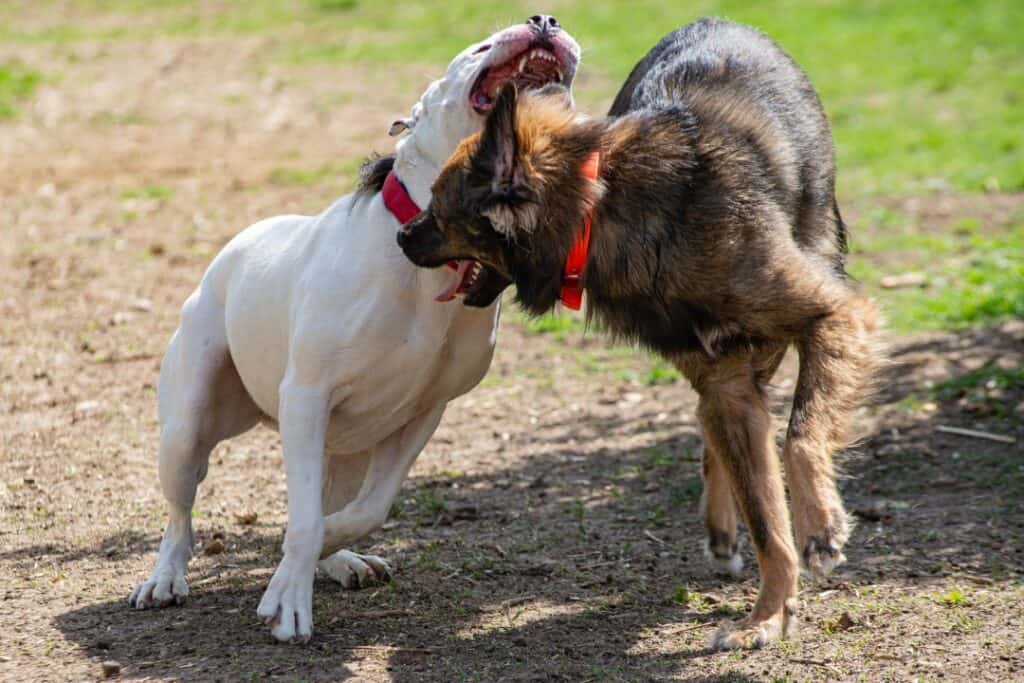
Territorial aggression is another reason for a Pit Bull to attack. Dogs can become aggressive when an unfamiliar animal or human approaches their territory or possessions.
Signs of territorial aggression include the following behaviors:
- Growling
- Barking
- Lunging
- Chasing
- Biting
Territorial aggression is not confined to the dog’s home and may also occur in any area the dog wants to keep for itself, like the car, a park bench, or near their belongings. Dogs are particularly possessive and aggressive when it comes to their toys and food, and it is never a good idea to approach or touch a dog while eating.
Dogs with boundaries or those confined to specific areas may be more prone to territorial aggression. Due to the dog’s frustration, the aggression may continue even after the threat has disappeared. You can prevent territorial aggression by allowing the dog to explore different places and interact with other pets and people at an early age.
4. Illness or Pain
If your Pit Bull starts exhibiting aggression when they are usually gentle, it may indicate that they are ill or suffering from pain. Dogs are more easily agitated when they don’t feel well.
When dogs are hurt, they can be very reluctant to touch since it may cause more pain. They may exhibit resistance by growling or attacking anyone who approaches them, even their owners.
Illness can also make dogs unusually aggressive. For instance, rabies deteriorates the dog’s brain, making them fearless and causing bizarre and aggressive behavior that may eventually lead to biting a human or another animal to transmit the disease.
You should consult a veterinarian immediately if your dog shows a sudden behavior change.
5. Idiopathic Aggression
Unfortunately, not all causes of a Pit Bull’s aggression can be traced. Like all dogs, some Pit Bulls may spontaneously attack, even when unprovoked.
Idiopathic aggression, also known as rage syndrome, occurs for no particular reason, or at least not one that is evident. A Pit Bull with rage syndrome can have a sudden burst of outrage and become highly aggressive without apparent triggers.
These aggressive outbursts may start with the Pit Bull freezing and staring, and it often ends with biting.
Sources
- True Pet Story: Why Do Pitbulls Attack People
- Highland Canine Training: Why Are American Pit Bulls So Aggressive?
- Clever Pet Owners: Why are Pitbulls so Aggressive?
- The Spruce Pets: Reasons Why Dogs Get Aggressive and How to Stop It
- Tractive: Our Expert Reveals Everything You Need To Know About Fear In Dogs
- Breeding Business: Is Pitbull Aggression Genetic?
- ASPCA: Position Statement on Pit Bulls
- PetHelpful: How to Raise Your Pit Bull to Be Less Aggressive
- VCA Animal Hospital: Territorial Aggression in Dogs
- VCA Animal Hospital: Dog Behavior Problems
- Tri County Animal Hospital: Canine Aggression Toward Family Members

I created this blog to share my passion for bullies, and help current and future pitbull owners with things like diet and education.
Hope you find it useful, don’t hesitate to drop a comment on my articles!

